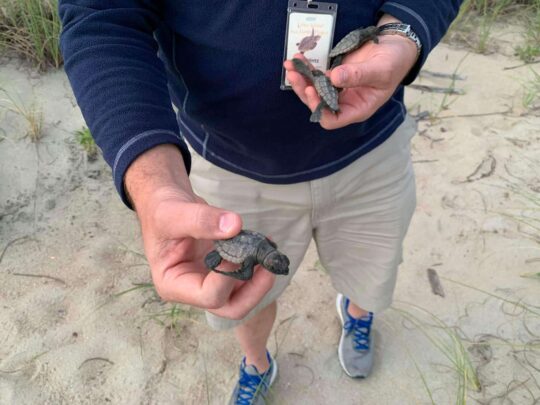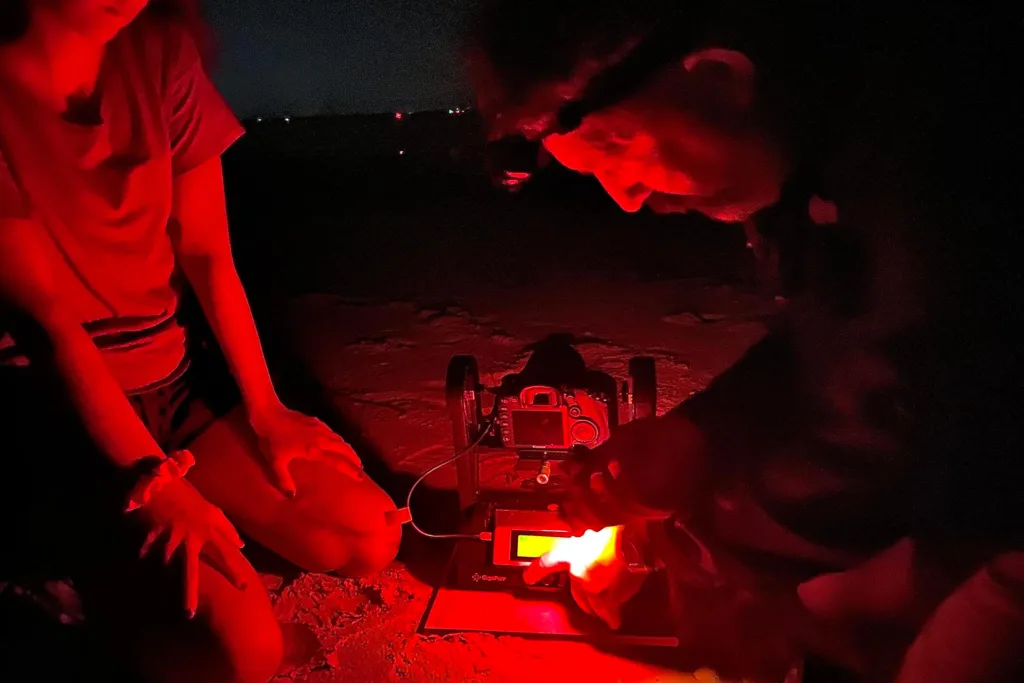Savannah State University
Savannah State University Professor of Marine Sciences Dr. Christopher Hintz and recent Master of Science graduate Emma Hester have been awarded a 2024 Google “Geo for Good Impact Award” in recognition of their groundbreaking research on how light pollution affects sea turtle nesting along the Georgia coast.

Dr. Hintz’s interest in sea turtle conservation began in 2010 when he became a certified volunteer with the Georgia Department of Natural Resources (DNR). Since then, his research has focused on understanding and mitigating light pollution—a major factor in disorienting sea turtle hatchlings who instinctively move toward the brightest horizon, typically the moonlight reflecting off the ocean.
“Early on, I tried to develop ways to measure light pollution on the beach in order to better understand hatchling misorientation—when turtles fail to make it to the ocean after emerging from the nest,” said Dr. Hintz.
Over the years, his research has involved several student collaborators. Among them, Emma Hester played a key role, contributing to the project consistently from 2021 until her graduation in 2024. The work is now continuing with graduate student and Georgia DNR field technician Breanna Sorg, who is expanding the research to further explore how hatchlings perceive light.
The team utilizes Google Earth’s geospatial tools to monitor and analyze nesting sites along the Georgia coast, including Tybee, Jekyll, and Ossabaw Islands. Using specialized cameras, they capture hundreds of images from the perspective of a sea turtle hatchling. These images are processed using software developed by Dr. Hintz and his students, producing panoramic visuals that highlight areas of light pollution—often invisible to the human eye but highly impactful to turtles.
“Turtles can see blue so much better than we can,” said Dr. Hintz. “Even if it’s there, we just don’t notice it—but they do.”
Dr. Hintz regularly shares his research with conservationists and coastal communities to raise awareness and promote action. He estimates that human-induced factors, including light pollution, affect 5–10% of Georgia’s 3,000–4,000 sea turtle nests each year. Many communities are now taking steps to mitigate the impact, including installing light shields, enforcing lighting ordinances, and adopting turtle-safe lighting practices.
“The Google Geo for Good Impact Award recognizes that Savannah State University faculty and students are conducting top-tier research that not only protects Georgia’s coastal ecosystems but has the potential to create global impact,” said Dr. Hintz. “It’s an honor to be listed among the other outstanding recipients. This award continues SSU’s legacy of innovative, student-driven research that makes a real difference.”


Read more on the original source

